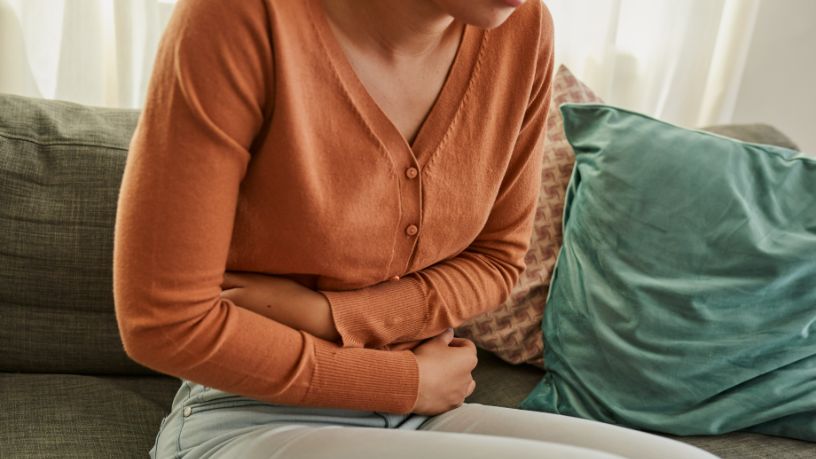The key to maintaining good gut health may be as simple as looking in the toilet before you flush.
On this page
Key takeaways
Understanding the Bristol Stool Chart can help you keep an eye out for any changes.
Make sure you’re aware of the signs of bowel cancer and understand the statistics.
People generally prefer to focus on what goes into their bodies rather than what comes out.
But, according to Bowel Cancer Australia Bowel Care Nurse Fiona Radford, taking a look in the toilet before you flush your number 2 can be a great healthcare tool, revealing important health information that’s often overlooked.
Here, we look at some of the crucial issues surrounding poo health.
What can your poo tell you?
When it comes to studying our own poo, we tend to be a little shy. But a quick peek before you flush can reveal important information, like whether you’re eating enough fibre or drinking enough water, or if there’s an issue with your digestive tract.
“Everyone’s poo is different, and it changes depending on what you eat and drink, [your] activity levels and medical history,” says Radford. “If there is a change that lasts for more than 2 weeks, it could be a sign that there is something wrong and should be discussed with your GP.”
Blood in your stool
While your poo can tell you a host of things about your health, the most pressing symptom to look out for is blood in your stool.
“The most important thing [poo] can tell you is if you have a polyp or tumour (as these sometimes bleed),” says Radford, “which may be cancerous.”
“Although blood in your stool does not always indicate bowel cancer, it’s important that you have it investigated,” Radford adds.
In addition to finding blood in your bowel movement, you should also speak to your GP if your stool appears bright red, dark red, maroon or extremely black.
The Bristol Stool Chart
Understandably, not everyone is a poo expert. That’s why the Bristol Stool Chart is a handy resource to help you analyse your movements.
The chart was designed to help classify and categorise poo into 7 types to make it easier to distinguish the healthy from the not-so-healthy. This can be very useful when you’re trying to describe your bowel movements to a doctor.
Generally speaking:
- types 1 and 2 may suggest constipation
- types 3 and 4 are considered normal
- types 5 to 7 indicate diarrhoea and might require medical attention.1
“A persistent change in bowel habit, especially going to the toilet more often or having looser, more diarrhoea-like motions for several weeks, can be a sign of something wrong,” says Radford.
Other symptoms of a digestive problem can include:
- abdominal swelling or pain (especially when severe)
- anal pain or lumps
- unexplained anaemia that causes tiredness or weight loss.
It’s possible that these symptoms are the result of a condition such as:
- bowel cancer
- haemorrhoids
- irritable bowel syndrome
- anal fissures
- inflammatory bowel disease.
In some cases, when these symptoms persist, a colonoscopy might be required for further investigation.
Member Health Programs
Discover health cover that's right for you with a range of personalised programs and services designed to support your health and wellbeing.
Is bowel cancer a risk for everyone?
The simple answer is yes. Bowel cancer doesn’t discriminate based on sex or age, and the long-held assumption that only older men need to pay attention to their bowel movements is wrong.
Close to 55% of Australians diagnosed with bowel cancer are men, and the disease claims more than 2,800 male lives every year.2
But, around one in 15 Australian women will develop bowel cancer in their life, too. And the disease claims 2,500 female lives each year.3
If you find blood in your stool or you experience any signs or symptoms of bowel cancer for more than 2 weeks, you should speak with your GP about it.
How can you reduce your risk?
Around 60% of bowel cancer cases may be preventable with a healthy diet and lifestyle alongside screenings and surveillance.4
According to Bowel Cancer Australia Nutritionist Teresa Mitchell-Paterson, to achieve this you might “try to eat lots of non-starchy vegetables, some fruit and reduce your consumption of red meat to under 500 grams per week, including processed meats such as sausages, ham, salami and bacon”.
On the lifestyle front, “regular exercise, avoiding smoking, reducing alcohol consumption and keeping your weight to a healthy BMI are all factors that can assist you in reducing your risk,” Mitchell-Paterson adds.
Australians aged between 50 and 74 can receive a free at-home immunochemical faecal occult blood test (iFOBT) kit every 2 years under the National Bowel Cancer Screening Program.
But people of all ages should consider a screening if symptoms such as blood in your stool occur. You can purchase an iFOBT kit at a pharmacy or online.
And, of course, when it comes to any digestive issue, surveillance is key. So, don’t be shy and remember to take a quick peek before you flush.
Resources
Bowel Cancer Australia offers support online or over the phone on 1800 727 336.
The National Bowel Cancer Screening Program provides information and resources, including free screening kits to eligible Australians.
Cancer Council offers resources online and over the phone on 13 11 20.

At Bupa, trust is everything
Our health and wellbeing information is regularly reviewed and maintained by a team of healthcare experts, to ensure its relevancy and accuracy. Everyone's health journey is unique and health outcomes vary from person to person.
This content is not a replacement for personalised and specific medical, healthcare, or other professional advice. If you have concerns about your health, see your doctor or other health professional.
1Continence Foundation of Australia. (2024). Bristol stool chart. Continence Foundation of Australia.
2Bowel Cancer Australia. (2024). Bowel cancer in men. Bowel Cancer Australia.
3Bowel Cancer Australia. (2024). Bowel cancer in women. Bowel Cancer Australia.
4Bowel Cancer Australia. (2024). Modifiable risk factors. Bowel Cancer Australia.
You might also like...
Bowel cancer: The basics
Bowel cancer is the second deadliest cancer in Australia, and unfortunately, it can go undetected. Find out about the symptoms and available screenings.
Beating bowel cancer: The routine test that saved Jenny’s life
When Jenny did a routine bowel cancer test, she never imagined it would be positive. This is her story.
Colonoscopy
A colonoscopy is performed to investigate symptoms that affect your bowel. So, how does it work, and what should you expect if you’re having one?
Irritable bowel syndrome (IBS): The basics
IBS is a gut disorder that can include symptoms like diarrhoea, bloating and abdominal pain. Find out about the symptoms and how you can get diagnosed.





